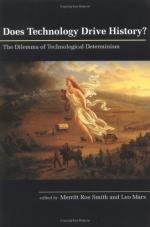|
This section contains 366 words (approx. 2 pages at 300 words per page) |
Determinism maintains that precise information about the initial conditions of a system provides an exact knowledge of how that system evolves in time. Newtonian mechanics, electrodynamics, and relativity are all deterministic theories. If we knew the properties (mass, charge, position, momentum, etc.) of every particle within a classical system to arbitrary precision today, then the equations of motion of the system that tell us how the particles interact can in principle predict the future state of the system tomorrow. It is only our incomplete knowledge of the state of the system today and the difficulty in performing the necessary calculations that prevents us from divining the future. Some philosophers hold that in such a framework, there is no such thing as free will because actions are determined exclusively by the initial conditions. The universe evolves as the equations tell it to.
Chaos theory, a branch of mathematics with a wide range of physical applications, holds that tiny differences between a pair of initial conditions can produce profound differences in how a system evolves. Even for simple mechanical systems such as the double pendulum, if the initial conditions (which include environmental factors) are even slightly different, the final state and the path the system traverses to get there can be drastically modified. Therefore, any imperfections in the knowledge of the initial conditions render an attempt to deduce the future state futile. Because the initial conditions need to be measured and the devices used to make those measurements do not provide arbitrarily precise data, information about the initial conditions is always imperfect.
Quantum mechanics is not a deterministic theory. It holds that the initial conditions of a system cannot be measured to arbitrary precision even if the measuring devices are capable of providing that level of precision. The uncertainty principle states that x · p ħ/2. That is to say, the product of the uncertainty in a measurement of the position of a particle and the uncertainty in a measurement of its momentum is always greater than a dimensionful constant. Because of this intrinsic property of matter, we cannot obtain a perfect knowledge of the initial conditions, and the evolution of any system is not deterministic.
|
This section contains 366 words (approx. 2 pages at 300 words per page) |


